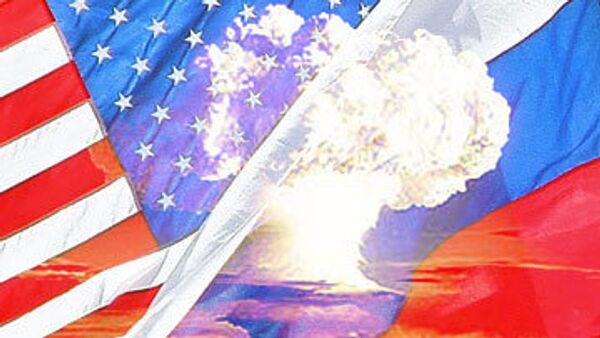Russia insists that the monitoring of missile manufacturing facilities should not be included in a new strategic arms reduction deal to replace the START I treaty, a source said on Friday.
With the expiration of the Strategic Arms Reduction Treaty (START I) on December 5, U.S. inspectors left on Friday a machine building plant in the city of Votkinsk, located about 1,000 kilometers (621 miles) east of Moscow, to end their monitoring mission at the missile manufacturing facility, which lasted for over two decades.
A source close to ongoing Russia-U.S. talks on a replacement to the START I treaty said Moscow wants the new deal to not include monitoring of the Votkinsk plant, as Russian inspectors have not been monitoring similar facilities in the U.S. since 2001 and "there are plenty of other arms control measures that could be implemented by both sides."
Washington insists on the continuation of monitoring at the Votkinsk plant, which produces all Russian intercontinental ballistic missiles (ICBMs), including advanced Topol-M and RS-24 missiles.
The U.S. also wants to establish closer monitoring of Russia's mobile Topol-M systems.
Under the Intermediate-Range Nuclear Forces Treaty (INF) concluded between the United States and the Soviet Union in 1987, the missile production facility at Votkinsk was selected for long-term on-site monitoring by U.S. inspectors.
The corresponding site for the Soviet Union in the United States was the Hercules missile production facility in Salt Lake City, Utah, which Russian inspectors left in 2001 after the last American-made ICBMs rolled off the assembly line as the U.S. decided to produce solely long-range cruise missiles.
The 1991 Strategic Arms Reduction Treaty, the core of Russian-U.S. nuclear disarmament, expires on Saturday.
Presidents Dmitry Medvedev and Barack Obama announced at their first meeting in April that the two countries would replace the START 1 treaty as part of their efforts to "reset" bilateral ties, which have been strained in recent years.
Moscow and Washington have been in intensive negotiations since July, when the presidents agreed the treaty's outline, which included cutting nuclear arsenals to 1,500-1,675 operational warheads and delivery vehicles to 500-1,000.
Officials in Moscow and Washington said recently the new pact is unlikely to be ready by December 5, but expressed the hope that the document would be signed by the end of the year.
The chief of the Russian General Staff said earlier that the ongoing talks had run into disagreements on inspection and verification procedures.
Russian and U.S. negotiators are expected to meet in Geneva on Saturday for the next round of talks on the preparation of the new arms reduction document.
MOSCOW, December 4 (RIA Novosti)




